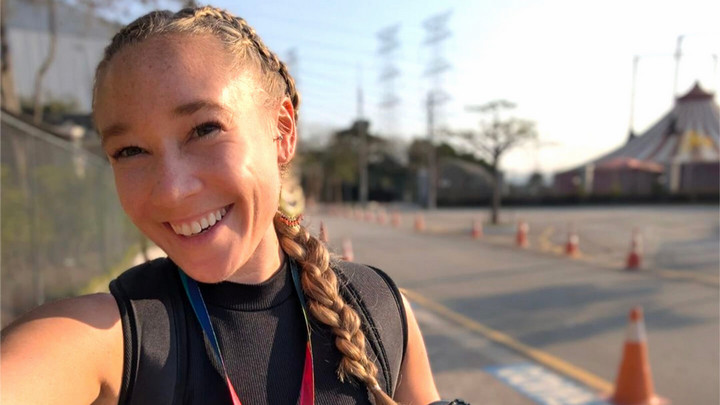Adventures in teaching
December 04, 2024

Education grad Nya Harle finds joys and challenges working in São Paulo, Brazil, where personal connection takes centre stage.
Teaching has always been my gateway to adventure, and this drive comes from my father’s own journey as an educator and explorer. In his 20s, as a graduate of UVic, he embarked on a teaching opportunity in the remote Inuit community of Igloolik, Qikiqtaaluk Region in Nunavut, northern Canada. He often shared stories of cultural immersion and navigating language barriers. Later, our family spent two year-long teacher exchanges in Australia, and these experiences inspired me to combine my own career with international opportunities.
When I first set out to teach abroad, I knew I was in for an adventure, but the depth of personal and professional growth I experienced exceeded my expectations. My journey as a teacher has taken me to the bustling, vibrant schools of Brazil. I currently teach at Escola Castanheiras in São Paulo, where young adults work towards an International Baccalaureate (IB). Along the way, I’ve encountered culture clashes and learned what it truly means to adapt as an educator in a global environment.
My first teaching position abroad was in Belo Horizonte, an IB school. I was part of a small group of international colleagues, all navigating the challenges of teaching in a country with vastly different customs.
In Canada, my teaching experience emphasized structure, personal space and clear professional boundaries with students. We’re taught to build relationships, of course, but with a degree of formality and physical distance. On my first day in Brazil, students greeted me with hugs, parents gave me cheek kisses, and my instinct to maintain distance was met with confusion. To them, my reluctance to embrace this warmth was seen as aloofness.
It was a wake-up call. My first lesson in Brazil was not about curriculum or classroom management—it was about adapting to a culture where human connection takes centre stage, and physical gestures are part of connecting with our community.
Food, music and celebrations have been key in sparking conversations with my colleagues and new friends. I’ve enjoyed exploring traditional Brazilian dishes like pão de queijo, moqueca and feijoada, and taking part in events like churrascos and Carnaval. Experiencing Brazilian music, especially pagode, has also been a memorable way to connect.
If teaching in Brazil has taught me anything, it’s that adaptation is not a one-way street. My students have also learned to adapt to me, to my “cold culture” quirks, and to the Canadian values I bring to the classroom. For example, I prefer more personal space, I don’t get cold easily and like to keep the windows open, and I maintain clear boundaries by keeping my personal life private, including not allowing them to add me on social media. We’ve grown together, building a learning environment that’s not just about academic success but about understanding and embracing different perspectives.
My time in Brazil has made me a more empathetic and flexible educator. The experiences of cultural immersion—whether it’s navigating a hug-filled hallway or discussing global perspectives with students—have expanded my understanding of what it means to be a teacher. It’s not just about delivering content; it’s about creating a space where students can connect with the world beyond their immediate surroundings.
Nya Harle is Canadian certified educator with a passion for global education and cultural exchange. She is originally from Campbell River.
—Nya Harle, BEd ’20
This article appears in the UVic Torch alumni magazine.
For more Torch stories, go to the UVic Torch alumni magazine page.
